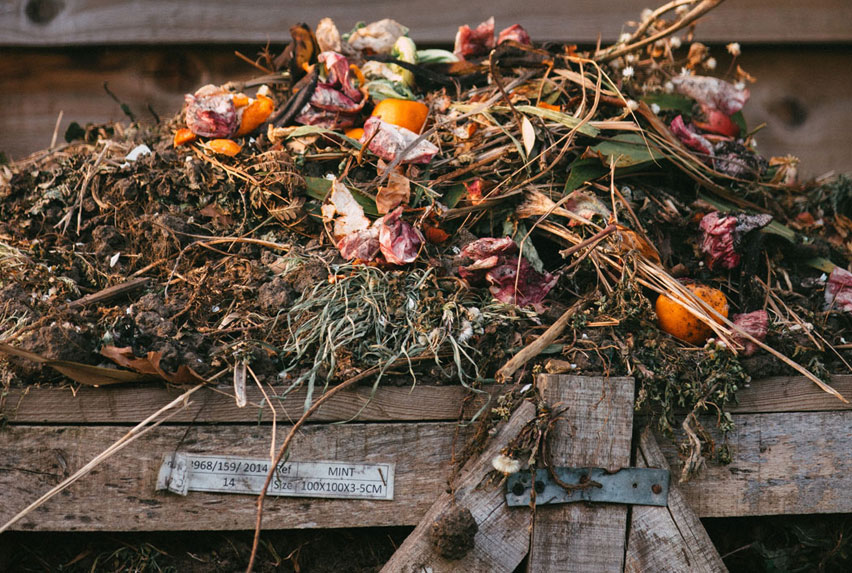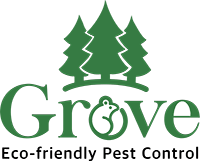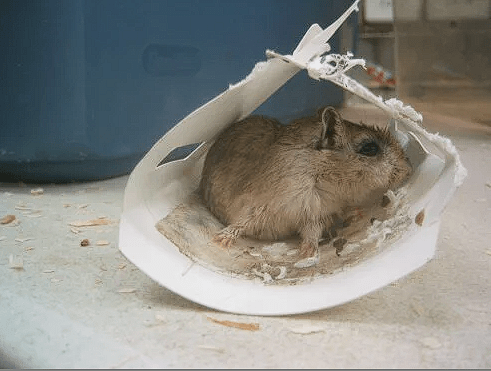Why Compost Is Amazing For Garden Pest Control (Guest Post)
This post is a guest post written by a fellow eco-friendly pest control company in Portland. Author: Keith Chaloux. Website:https://www.pestandpollinator.com

Compost is a key part of any good garden pest management strategy. As organic matter decomposes, it feeds soil life and releases nutrients back in forms your plants can use. Fascinatingly, plants, trees and shrubs sort of have an immune system like us. And like us, their immune systems work better when they’re well fed and taken care of.
Natural Garden Pest Control
Organic gardeners want to know how to get the best pest control without using any weed killers or pesticide sprays. After all, if it’s made to kill weeds or pests, it probably poses some hazard to similar non-target organisms. Always use Integrated Pest Management or consult a professional before applying any pesticide sprays, whether organic, all-natural or other. Healthy soils enriched with good compost, along with a few other techniques, will help strengthen your plant’s defense mechanisms. Often good compost practices boost garden pest control, disease resistance, and may even help mitigate climate crises.
Compost Basics
Composting is the practice of retaining organic material and utilizing active microbes to break down. Compost is the resulting product that you feed to your plants & soil. Here are basic techniques to get you thinking about starting your own compost bin. Or two.
- Keep a good ratio of “greens” to “browns.” Food scraps and recently pulled weeds are the greens.
- Dried desiccated leaves, plant stalks, twigs, nut shells and organic matter mostly makes up the browns.
- Keep the material aerated by turning every few weeks. This will favor more aerobic microbes and prevent it from becoming anaerobic, foul-smelling or slimy.
An Art & Science
Many sources might mention the need to feel your compost out. Finished compost, which is dark brown to black in color and has a mildly sweet earthy pleasant odor. Sprinkle compost up to an inch thick in the drip zone of your landscaping plants. Then mulch on top. Compost is perfect to mix into raised beds or pots when you’re first filling them. Mix equal parts peat moss, fine pumice & compost for an excellent soil for plant pots, planters and raised garden beds. Furthermore for folks with the resources, check out the online classes offered by Dr. Elaine Ingham. Dr. Ingham is the world’s foremost soil biologist and a celebrity in the compost world.
Compost Tea
So, after a year or two of messing around with compost you’ll be ready to use it in the garden. Concurrently, keeping your microbes happy will make your plants healthy, increase soil health, and help with garden pest control. Also, diluting compost with water into a liquid is a great way to apply compost to your plants.
Activated Aerated Compost Tea (AACT)
Lots of folks in the organic agriculture community are getting excited about the results of activated aerated compost teas (AACT). Growers take a few pounds of compost and bubble them in water with nutrients for a day. Actually, plant professionals often use AACT’s specifically in an attempt to aide with garden pest control.
Compost Tea For Garden Pest Control
Indeed, organic garden pest control professionals are finding under a microscope that beneficial fungi and bacteria are multiplying under these ideal conditions. It’s an easy way to enrich beneficial soil species, you just have to spritz it onto foliage or drench it into your garden soil. Notably, this can help the plant engage it’s natural defense mechanisms and assist with garden pest control for bugs like aphids and cabbage moths.
Compost Slurry
Lastly, a more traditional low-tech method is just soaking a few scoops of compost in a bucket. Simply stir occasionally or whenever you remember, and apply after 24 hours as a soaking drench to the soil around the root zone.
Plant Disease Resistance
In conclusion, good composting helps make your plants healthy and resistant to pests and diseases. This prevents you from having to spray any natural garden pesticides, slug killers, or even weed killers sometimes. Plants have many natural defense mechanisms. Providing your plant a healthy habitat is critical to preventing garden pests and diseases.
Mouse Proof Composting
Abundant food sources can cause mice to reproduce quickly, and improperly enclosed compost bins surely contribute.
- Enclose compost bins entirely, including along the bottom.
- To prevent mice from getting in your compost bin, allow no gap greater than 1/4″. Use quarter-inch galvanized steel mesh to fully enclose a six-sided wooden cube.
- Many existing compost bins can be modified to prevent mice eating compost at night.
That’s the end of the guest post. Thanks to Keith Chaloux for the great content.
Please call if you need any help with habitat modification and eco-friendly rodent control in Calgary!



